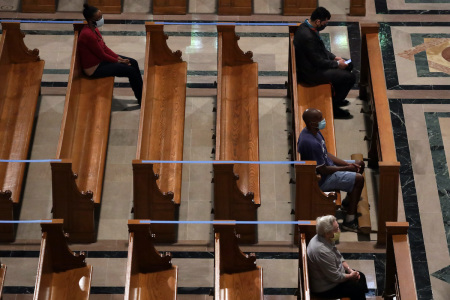A Christian economist on the threat of 'Christian' Socialism

I was recently joined by Dr. Peter Jacobsen on the Business in the Kingdom podcast on the Edifi network. Dr. Jacobsen teaches economics at the Gwartney Institute (Gwartney Institute | Angell Snyder School of Business | Ottawa University) at Ottawa University in Kansas, where he also heads up the MBA program and is one of the hosts of the Faith and Economics podcast. To listen my interview with Dr. Jacobsen, click below.
Below is a lightly edited transcript of that interview:
Jerry: Let's talk about Christian economics. As a Christian economist, when you meet people who panic about economic inequality or the rise of Socialism, what do you say to them?
Peter: You know, I've had generally positive responses from the people in my church. Actually, I think there's a decent amount of respect for each other's opinions here, I don't know if that means they support them. I think some people tend to be surprised, especially if I'm speaking, for example, to someone older in the church, and they ask what to do with the rise of socialism. I have a different answer for socialism in the church and out of the church because I think these are different questions. I think socialism as it stands today...once upon a time the goal of socialism was to create material well-being, and so before the Soviet Union rose the idea was that we're going to have equality, and in doing that bring about everybody having wealth. This was the stated claim. After the Soviet Union falls, the argument pivots. There's a kind of existential fear on the part of socialist intellectuals that maybe we can't actually generate the same wealth that capitalism can generate. And so instead the oppressed-labor-class becomes the oppressed-whatever-class, and the final goal actually becomes a movement towards equity.
I think socialism can be better understood as—not everyone, but by and large—as a movement based on some sort of religious desire. I was on a panel with a few different people talking about this at the Association for Private Enterprise Education conference last year. I think we need to treat Christian socialism as an alternative religion from Christianity, a non-Christian Christian religion. That doesn't mean that someone couldn't have some mistaken economic ideas and also be a Christian, but I do think that embedded in socialism is this alternative system of values, this alternative end time theory, all of this stuff.
Jerry: An alternative doctrine of the fall, the invention of private property.
Peter: Yes, that's exactly right.
Jerry: Did you intentionally call it a 'non-Christian Christian theory'?
Peter: Yes. I guess a better way to say it would be if someone described themselves as a Christian socialist, to me that sounds very similar to describing themselves as a Christian Caesar worshiper, right? It's almost a contradiction in terms.
Jerry: When you said non-Christian Christian theory, something occurred to me: it does tap into something Christian. It weaponizes the Christian concern for the victim.
Peter: Yeah, I think that's right. Socialism could thrive without Christianity when it was being a system of engineering, which is what it was in the Soviet Union. That's why the Soviet Union was able to persist as basically an attempted atheist society, though really more worshipping a specific version of like sciencism: scientific engineering of society. But when that fell apart, there was the pivot towards oppression of groups and victimhood. And I agree that that was specifically very easy to pair with, and have a parasitical relationship with, Christianity in the west.
Jerry Bowyer is financial economist, president of Bowyer Research, and author of “The Maker Versus the Takers: What Jesus Really Said About Social Justice and Economics.”





















